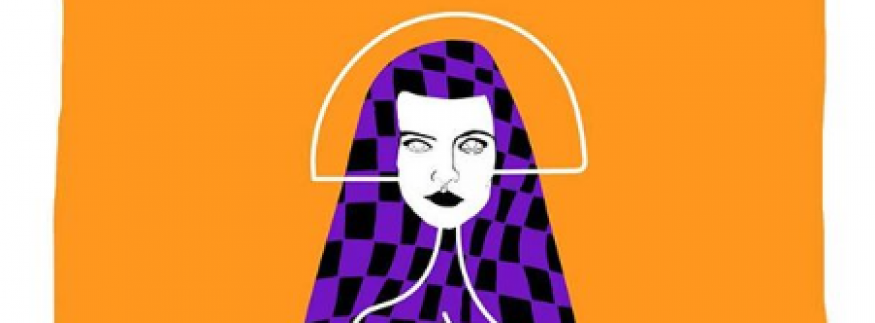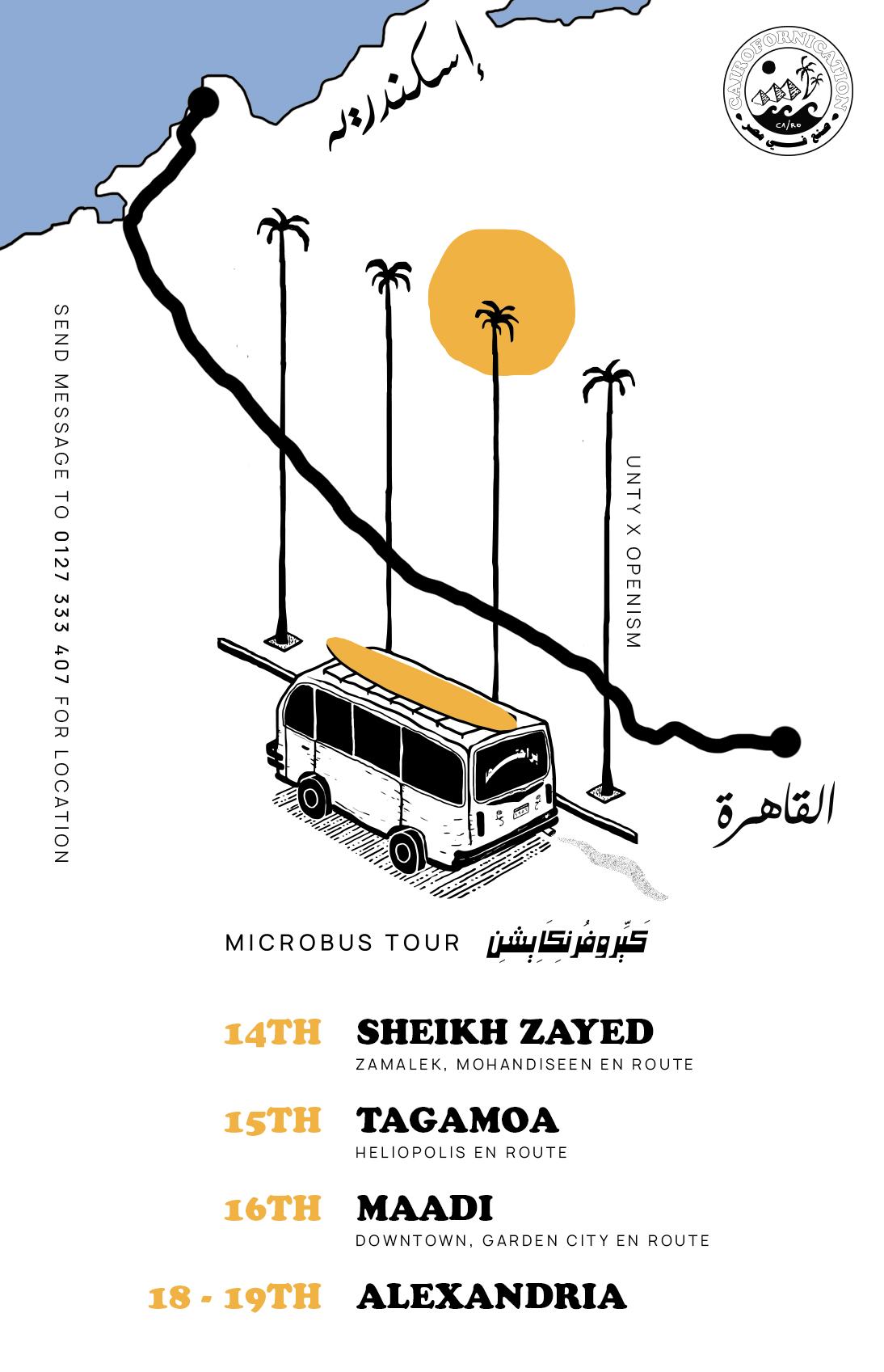
Cairo 360
Featured image via UNTY
Cairo and Los Angeles: both iconic cities with unique and complicated reputations. When talking about the two, many people wouldn’t expect to hear about the various similarities between both regions. Omar Mobarek and Ibrahim Mimou explore these nuanced similarities and their own identities as Arabs who spent much of their lives in Southern California while creating space for others with the same experiences.
Ibrahim Mimou is based in LA and owns the clothing brand OPENISM. Omar Mobarak moved back to Cairo from Southern California eight years ago and owns the clothing brand UNTY. The two artists met by chance earlier this year and, after realising that they shared many of the same viewpoints and ideas, decided to collaborate. Cairofornication is their brainchild. The t-shirts, sweaters, and bags available blend common imagery from Cairo and LA, with palm trees being one of the biggest themes. “Cairo and California, I’ve always felt there’s a bit of a similarity, especially when I’m stuck in traffic and just looking up and I see the palm trees with the blue backdrop, I’m like ‘I could easily be in California right now’, and the desert as well…” Mobarek explains. Aesthetic similarities are not the only ones drawn upon for this project; both Mimou and Mobarek cited the prominent “beach culture” and “laidback lifestyle” present in both cities.
The artists also discussed the advantages of their multicultural backgrounds and how it influences their work. “The contrast [between the two cultures] gives me a lot of inspiration and a lot to work with”, says Mobarek as he reflects on his return to Egypt after growing up in the US. He describes how the mundane, everyday sights in Egypt can stand out to him more than they would to someone who has lived here their entire life. “I lived a completely different life and I was allowed a lot of different freedoms, so I think that gives me a lot of room to experiment and room to explore.” Mimou mirrors this viewpoint, but explained that he wishes Arab communities in the US would focus more on the accomplishments of Arab cultures and the unique qualities that make up the Arab identity;
“I think, as an Arab Muslim growing up in Southern California, often times our families and communities will use religion and our culture to bring their children closer to their background, when they most probably should have focused on things that make us who we are today such as our very rich history, our intellectual knowledge, everything we have achieved…a lot of times these communities focus on religion specifically and a little bit of culture. It’s [often] misinterpreted culture in the form of religion, and I think that can prohibit someone in a diaspora from truly understanding or being able to learn about their tradition and very rich history, whereas someone in Egypt may not have had that same experience.”
Mobarek makes sure to emphasise the fact that, although there are indeed different freedoms in LA, Egyptian youth within some subcultures explore their own freedoms in the same way, despite some of the stigmas that exist, especially for young women. “When I first moved here, I noticed there was a big taboo surrounding relationships and the way people can be free with each other…that was something I experienced just through observation, obviously I wasn’t really on the rough end of the stick, you know, usually girls are.” From these observations, براحتها was born. Translating to “as she likes”, Mobarek once noticed a sticker with this word on the back of a microbus and was shocked at the irony of it. “To me, that felt like a paradox, you know, because girls really aren’t free at all in the streets.” Alongside the Cairofornication exhibit was a showcase of the work of three female photographers in Egypt who explore themes such as the male gaze, bonds between female family members, and female emotions and expressiveness. Mobarek stated that it was important that they give these women a platform, “It’s a big part of the exhibition, it just wouldn’t be fair to not include some sort of representation from a woman’s perspective…we made sure to have that be extremely exclusive so that it would have its own space.” Mimou added that this concept is not only significant for Egypt, but for LA as well.
Both artists hope their work and this concept will inspire the growth of a community among those who relate to it. On the differences between both cultures, Mimou states that he hopes people can examine it in a “reflective manner” and in a way that people can acknowledge the differences between the two cultures and be comfortable with them and grow within that reflection. Mobarek hopes to mostly reach out to the youth of Cairo and create a space in which “people will get each other…you know, we’re young, we want to have a good time, we want to explore our freedoms.”

Mimou gave us a description of their upcoming plans for their microbus tour: “we will be taking off on the 14th and driving around Cairo, publicising a WhatsApp number (+20 127 333 4087) so that people can send us their locations through the day and we will pull up with our merchandise and a bus filled with our friends. Some of whom may be photographers, filmmakers, musicians, designers, and so-on. In addition to driving around through the day, we will designate a meet-up spot for each evening where we will hang out with various people as we play music and share conversation out of the microbus. We also plan to go to Alexandria on the 17th, returning back to Cairo on the 20th. The microbus will be open to the public during this time and we encourage all to join us and have us come out to them as this is the best way we can share our collaboration and the story of CAIROFORNIFICATION.”
recommended
 City Life
City Life
Weekend Guide: Ramy Sabry, Ilmond, Zaid Khaled, Taxi El Sahra, Chamber Music Concert, Trivia Night & More
Concerts Dance Night +4 Arts & Culture
Arts & Culture
Art Workshops in Cairo: 6 Art Spaces Offering Niche Artistic Workshops in Cairo
art workshops Cairo Activities +1 Arts & Culture
Arts & Culture
The Coptic Museum: The History of Egypt to the Tunes of Psalms of David
arts & culture cairo museums +4 Health & Fitness
Health & Fitness

